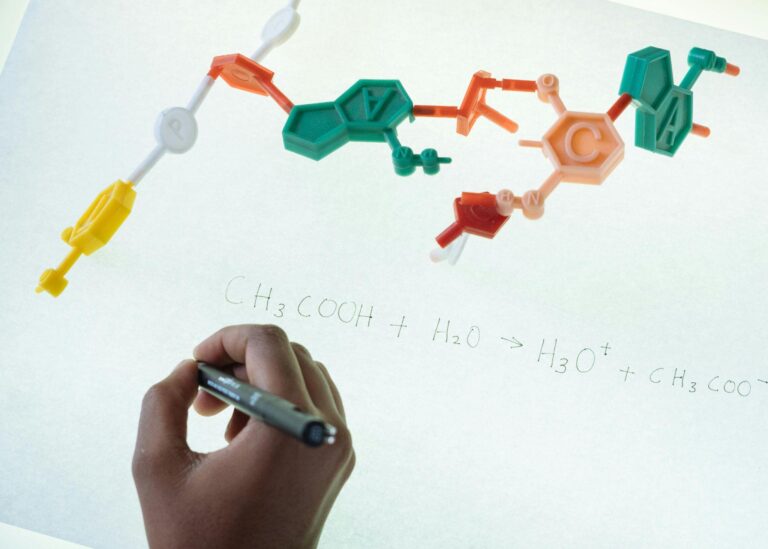Experiencing chest pain after consuming alcohol can be alarming and warrants further investigation to understand the underlying causes. This discomfort may stem from various factors, ranging from common digestive issues exacerbated by alcohol to more severe cardiovascular concerns. Additionally, this article will delve into how alcohol can aggravate acid reflux, highlighting the broader health implications of regular alcohol consumption. It’s crucial to acknowledge that while this article offers valuable insights, it does not replace the need for professional medical advice.
For those facing persistent chest discomfort, especially after drinking, seeking immediate medical consultation is imperative. For individuals where alcohol consumption is a contributing factor to their health issues, considering alcohol rehab may provide the necessary support to address both the immediate symptoms and the underlying dependency on alcohol, promoting overall health and well-being.
Understanding the Alcohol-Chest Pain Connection
A significant proportion of individuals who consume alcohol experience chest pain, a phenomenon that can be attributed to several physiological factors. One of the most common factors is alcohol intolerance. This occurs when the body cannot efficiently break down alcohol, leading to an array of symptoms, including chest discomfort.
Another key factor to consider is esophageal spasms, involuntary contractions of the esophagus that can be triggered by alcohol consumption. These spasms can cause intense chest pain, often mistaken for a heart attack. Certain individuals may suffer from alcohol allergies, which are immune system responses to the chemical compounds in alcohol. These allergic reactions may manifest as chest pain, among other symptoms.
The relationship between alcohol consumption and chest pain is multifaceted, involving biochemical, neurological, and immunological processes. Understanding these connections can help individuals make informed decisions about their alcohol intake and seek appropriate medical intervention when necessary. It underlines the need for heightened awareness and education about the potential adverse effects of alcohol, specifically in relation to chest discomfort and related conditions.
Common Digestive Issues From Alcohol
Beyond the chest discomfort associated with alcohol consumption, there are a variety of common digestive issues that can also arise from drinking alcohol. Gastric discomfort is one such problem, often presenting as a sensation of fullness, bloating, or stomach pain. Alcohol can increase the production of stomach acid, leading to gastritis or inflammation of the stomach lining.
Esophageal irritation is another potential complication, as alcohol can cause the muscular valve separating the esophagus and stomach to relax, leading to acid reflux. This can result in a burning sensation or pain in the chest, often mistaken for heart-related chest pain. The direct effect of alcohol on the digestive system can lead to disruptions in the normal process of digestion, resulting in a range of digestive issues, from constipation to diarrhea.
Cardiovascular Impact of Alcohol Consumption
Alcohol consumption can also have significant impacts on your cardiovascular system, potentially causing discomfort or pain in the chest. This stems from the way alcohol affects heart health. It can lead to increased blood pressure, which exerts extra strain on the heart and circulatory system. Over time, this can result in a variety of cardiovascular conditions, from hypertension to heart disease.
Alcohol can negatively affect arterial function. It can lead to the hardening and narrowing of the arteries, known as atherosclerosis, which can impede blood flow and increase the risk of a heart attack or stroke. Furthermore, excessive drinking can lead to cardiomyopathy, a condition where the heart muscle becomes enlarged, thick, or rigid. This can weaken the heart, making it less efficient at pumping blood throughout the body, which can cause chest pain and other symptoms.
Alcoholic Beverages and Acid Reflux
Alcoholic beverages can exacerbate symptoms of acid reflux, a common condition that can cause chest pain after drinking. The consumption of alcohol can lead to increased gastric irritation and esophageal burning, which are typical manifestations of acid reflux. These reactions occur as alcohol can weaken the lower esophageal sphincter, allowing stomach acid to escape into the esophagus, thus causing the characteristic burning sensation.
Alcohol can stimulate the production of stomach acid, further leading to acidic reactions in the digestive system and intensifying the discomfort. In particular, beverages with high alcohol content or those mixed with acidic mixers can significantly aggravate these symptoms. Digestive discomfort, often described as a burning sensation in the chest or upper abdomen, is a hallmark of acid reflux. Alcohol can slow down the digestive process, causing food to remain in the stomach for a longer time and increasing the risk of acid reflux. Therefore, excessive and frequent alcohol consumption can intensify these symptoms and potentially lead to chronic acid reflux or gastroesophageal reflux disease (GERD). Thus, moderation in alcohol intake or avoiding it altogether can help alleviate these symptoms.
Psychological and Emotional Impacts
Alcohol consumption can exacerbate psychological issues such as anxiety disorders, leading to stress amplification. This heightened stress response can lead to physical symptoms like chest pain. The emotional distress caused by excessive drinking can alter pain perception, making individuals more sensitive to physical discomfort. The psychological impacts of alcohol, including anxiety and emotional distress, can potentially cause or amplify chest pain.
Preventative Measures and Healthy Lifestyle Choices
To prevent chest pain after alcohol consumption, consider various factors. Identifying and avoiding allergenic beverages helps if you have alcohol allergies. Smoking enhances alcohol’s negative effects, so quitting is beneficial. Stress exacerbates chest pain, so stress management techniques are crucial. Genetic predisposition may influence alcohol tolerance; therefore, understanding one’s personal health history is key. Ultimately, moderation in alcohol intake is the most effective preventative measure.
Maintaining a balanced diet and regular exercise can significantly mitigate the adverse effects of alcohol on the body. Drinking plenty of water and avoiding greasy or acidic foods can help manage digestive discomfort. Additionally, seeking professional medical care and advice for persistent symptoms is essential for addressing underlying health issues.
Seeking Medical and Professional Help
For individuals experiencing severe chest pain or other concerning symptoms after alcohol consumption, it is crucial to seek medical attention. Persistent or severe symptoms may indicate serious health issues such as heart conditions, liver damage, or gastrointestinal problems. Medical professionals can provide proper evaluation, diagnostic tests, and effective treatments tailored to individual needs.
Alcohol Addiction and Treatment Options
For those struggling with alcohol addiction, comprehensive treatment options are available. Alcohol detox programs can help manage withdrawal symptoms and initiate the recovery process. Behavioral therapy, family therapy, and holistic therapy approaches can address the psychological and emotional aspects of addiction. Individual therapy and support groups can provide ongoing support and strategies for maintaining long-term abstinence from alcohol.
Final Thoughts
Alcohol consumption can potentially lead to chest pain due to various physiological impacts such as digestive issues, cardiovascular impacts, and acid reflux. Regular, heavy drinking increases these risks, highlighting the need for moderation and responsible consumption. A clear understanding of these correlations can contribute to making healthier decisions and fostering dialogue about alcohol and health. However, seeking professional medical advice for persistent chest pain or discomfort is crucial.
At Altitude Recovery, we’re committed to lifting you from the depths of substance use challenges to the heights of recovery and resilience. Our expert team provides personalized, evidence-based treatment services to support your distinct path towards healing. Reach out to us for the understanding and compassionate care you deserve on your journey to wellness.
Frequently Asked Questions
What Are the Psychological Impacts of Alcohol Consumption That Could Cause Chest Pain?
Alcohol consumption can exacerbate psychological issues such as alcohol anxiety, leading to stress amplification. This heightened stress response can lead to physical symptoms like chest pain. The emotional distress caused by excessive drinking can alter pain perception, making individuals more sensitive to physical discomfort. The psychological impacts of alcohol, including anxiety and emotional distress, can potentially cause or amplify chest pain.
Can Alcohol-Induced Chest Pain Be a Symptom of More Serious Health Issues Not Related to Digestion or Heart Problems?
Yes, alcohol-induced chest pain can be indicative of severe health conditions not directly related to cardiac or digestive issues. Alcohol intolerance or gastrointestinal reflux could be potential causes. Consistent alcohol consumption can lead to liver disease symptoms, such as pain and swelling. Moreover, alcohol can elevate blood pressure, increasing hypertension risks. It’s essential to consult a healthcare professional if you experience persistent chest pain after alcohol consumption.
How Does Alcohol Interact With Medications That Might Result in Chest Pain?
Alcohol can interact negatively with certain medications, potentially leading to chest pain. This is due to its ability to interfere with medication absorption and metabolism, potentially reducing efficacy or triggering adverse reactions. Alcohol can alter pain perception, exacerbating pre-existing discomfort. It also counteracts the anti-inflammatory effects of some medications, which might result in inflammation-related pain. Always consult a healthcare provider when combining alcohol with medication.
Are There Any Preventative Measures to Avoid Chest Pain After Consuming Alcohol Beyond Limiting Consumption?
To prevent chest pain after alcohol consumption, consider various factors. Alcohol allergies can cause such symptoms, and identifying and avoiding allergenic beverages helps. Smoking enhances alcohol’s negative effects, so quitting is beneficial. Stress exacerbates chest pain, so stress management techniques are crucial. Genetic predisposition may influence alcohol tolerance; hence, understanding one’s personal health history is key. Ultimately, moderation in alcohol intake is the most effective preventative measure.
Does the Type of Alcoholic Beverage Consumed Influence the Occurrence or Severity of Chest Pain?
The type of alcoholic beverage consumed can potentially influence chest pain. Factors such as alcohol tolerance, genetic predispositions, and age may play a role. The beverage’s temperature might also be a factor, as cold drinks can sometimes cause muscle contractions and chest discomfort. However, these factors can vary greatly among individuals, so it’s vital to seek medical advice if you’re experiencing chest pain after alcohol consumption.
For individuals facing significant challenges with alcohol consumption and experiencing persistent chest pain, exploring residential inpatient treatment options can be a transformative step toward recovery. These programs offer a structured environment where patients can undergo detox under professional supervision, ensuring their safety and comfort. Drug rehabs provide comprehensive support, addressing both the physical and psychological aspects of addiction. By participating in such a program, individuals receive tailored treatment plans, therapy sessions, and the tools needed to achieve long-term sobriety and improved health. Embracing residential inpatient treatment can be a pivotal moment in one’s journey to reclaiming a healthy, fulfilling life.





